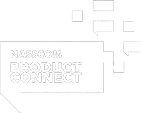Many researchers believe that learning has a social context. This means the construction of knowledge, and hence, human development happens through interaction with others. Social Constructivism is one such theory that emphasises and explains the collaborative nature of learning.
Constructivism is usually represented as a theory of learning in which learners construct their understandings via critical engagement with the knowledge to create personal structures of data. Rather than simply receiving information, the learner seeks meaning from a spread of data sources and discussion with others. Teaching practice shifts from lectures and other transmittal modes to problem-based, collaborative and experiential designs for learning.
According to this theory, learning doesn’t happen solely within the individual merely through the assimilation of new knowledge. The social and cultural settings in which learning takes place play the primary role in it. Successful teaching and learning depend on interpersonal interaction, communication, and discussion, focusing on the students’ understanding of the discussion. The theory encourages teachers to stimulate and facilitate conversation in the classroom.
Multiple studies show how student discussion in the classroom results in the construction of knowledge and development of skills that support the theory of Social Constructivism. For example, participating in group discussions in the class allows students to better understand the discussion topic, transfer their knowledge, and develop their communication skills.
Constructivism shapes teaching and learning as:
- A constant activity
- A search for meaning
- Understanding mental models of scholars and other knowledge creators suggesting customised curricula
- Assessment being a component of the training process
- A collaborative process facilitated through conversations.
Constructivism is a collaborative approach of teachers and students towards learning.
One of the responsibilities of teachers in the Social Constructivist learning model is to recognise each student’s individuality. Described as the ‘Zone of Proximal Development’, it is the area where the student is challenged but not overwhelmed, where they can remain unthreatened and learn something new from experience.
This means that teaching must start with what the student already knows and then build another framework that supports further knowledge.
In Social Constructivism, students should learn to speak through dialogue and later understand the meaning of speech by making subjective connections among concepts. Students, therefore, need to be challenged with learning material that they would most likely be unable to complete on their own but, with help, could learn successfully. This could be done by considering internal factors, including the learner’s prior cognitive experiences that influence the ways in which new information is interpreted and understood. Therefore, gaining knowledge involves a constant process of construction and reconstruction. Students in this type of classroom can also be considered a community of learners. The teacher frequently scaffolds learning. Therefore, teaching in a Social Constructivist environment encourages knowledge formation and fosters skill development, including judgment and organisation.
Embibe Product/Features: Live Doubt Resolution, Parent App, Teacher App with JioMeet
Embibe emphasises Social Constructivism with its feature of ‘Live Doubt Resolution’ which gives students 24X7 academic chat support and helps students in clarifying their doubts the moment they get one. Apart from the Embibe Student App, we also have a ‘Parent App’ and a ‘Teacher App’ which create a strong triangle between the three stakeholders in the education ecosystem. Teachers and parents can closely monitor and reward the students on these apps. Through JIO Meet, we build positive connections between parents and teachers that have resulted in the improvement of children’s academic knowledge and skills, social competencies, and emotional well-being. When parents and teachers work as partners, children do better in class and eventually, in life.

























